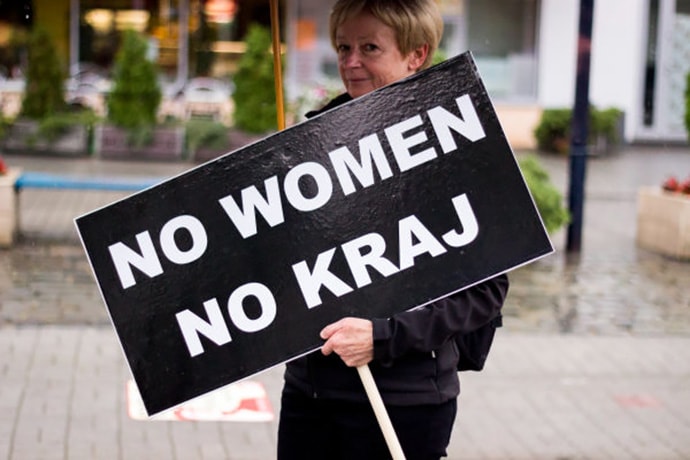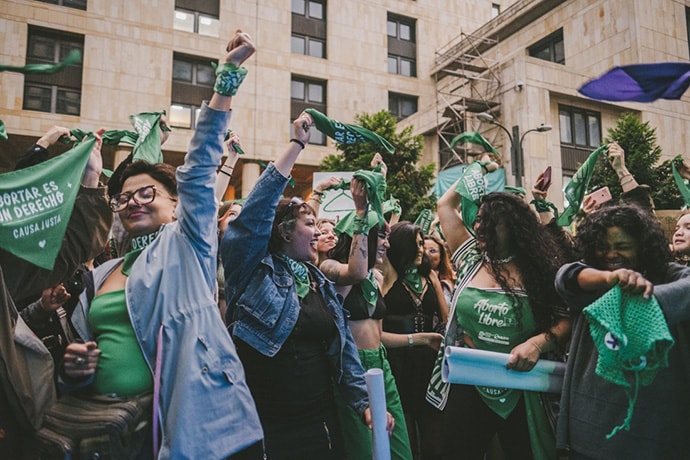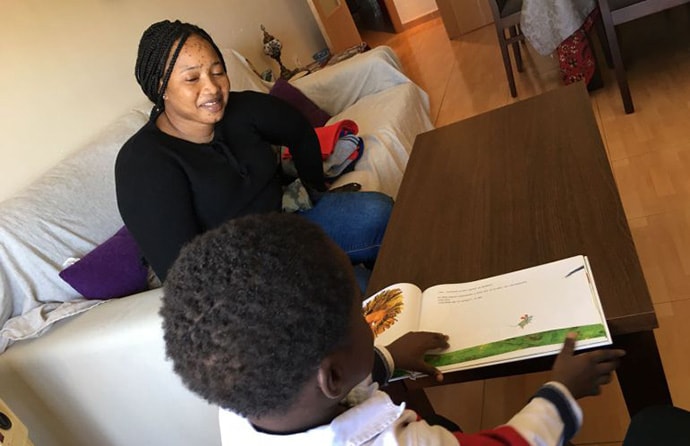By Women’s Link Worldwide

Czarny Protest| Credit: Iga Lubczańska © Licensed under CC BY 2.0
At Women’s Link Worldwide, we seek to highlight the ways in which women, girls, and gender diverse people – existing at the intersection of varied marginalizations – uniquely live the refugee and migrant experience. We’ve borne witness to how their gender plays a role in their risk of trafficking, sexual violence, inadequate responses to their reproductive health needs, and other human rights violations.
In our work, and the work of our partners, we’ve seen how gender has deeply influenced the experiences of women and girls as refugees and migrants. The war in Ukraine, for instance, highlights how gender makes every conflict situation unique. Women and children make up 90% of those fleeing the country and experience certain challenges along the way, including the need for reproductive health services. Women and young girls arriving in countries such as Poland are encountering restrictive laws that make it difficult for them to access safe and legal abortion. Working with local partners, we seek to make access easier and to advocate for those who are caught up in anti-rights efforts to limit access by criminalizing those who aid people seeking abortions such as Justyna Wydrzyńska.You can learn more about Justyna’s case here.
In Latin America, Colombia has seen a large influx of people fleeing the humanitarian crisis in Venezuela. There, we are litigating Evaluna’s case (name changed to protect privacy), a Venezuelan migrant woman who had an unplanned child after she was denied an abortion as she did not have proper documentation despite this not being a hindrance under Colombian law. After exhausting all the remedies available under Colombian law, we have taken the matter before the Inter-American Commission of Human Rights. This case seeks to create a precedent that protects the rights of all women, girls and gender diverse people.

Causa Justa rally | Credit: Victoria Holguín
As part of the Green Wave in Latin America; Colombia of the decriminalized abortion up to 24 weeks in 2022, making it one of the most progressive in the region. Women’s Link Worldwide is part of Causa Justa, the coalition that pushed for the change via litigation at the Constitutional Court, and has a particular focus on marginalized groups such as undocumented migrant women. This dynamic was acknowledged by the court – demonstrating how our knowledge and expertise is brought to bear on cases such as Evaluna’s as we seek to make safe and legal abortion more accessible in the country and the region.
In Spain, Women’s Link Worldwide went before the European Court of Human Rights (ECHR) to put an end to the separation of migrant women and their children by the Spanish government. Our client Oumo, a woman from Ivory Coast, was separated from her four-year-old son when she was en route to Europe. Despite having completed all the possible procedures, child protective services did not reunite her with her son, violating their rights and causing irreparable harm. Oumo was able to embrace her four-year-old son for the first time in seven months after Women´s Link presented her case at the ECHR. Spanish authorities, on the strength of the evidence presented and under pressure from Oumo and those accompanying her in her search for justice, agreed to reunite them. During their separation, Oumo´s son lost his native language. His mother´s concern about truly reconnecting with him highlights the challenges that come with forced migration in various regions of the world.

Oumo watches her child read after they were reunited | Credit: Laura Martínez
As we continue to witness and respond to the various migrant crises around the world, we at Women’s Link Worldwide are more committed than ever to working with women, girls and gender diverse in their pursuit of justice and freedom. We invite you to keep up to date on our work by following us on Twitter and LinkedIn.